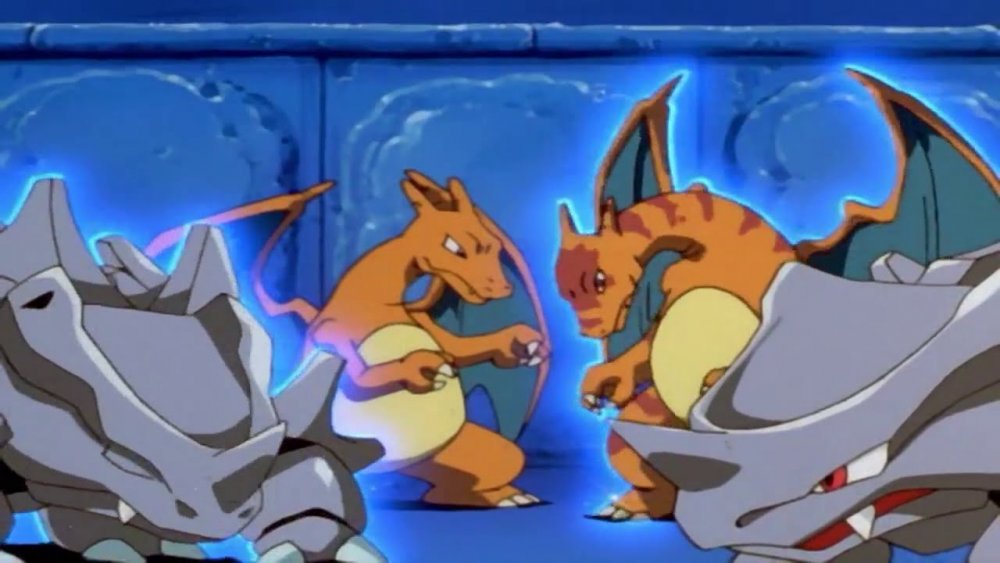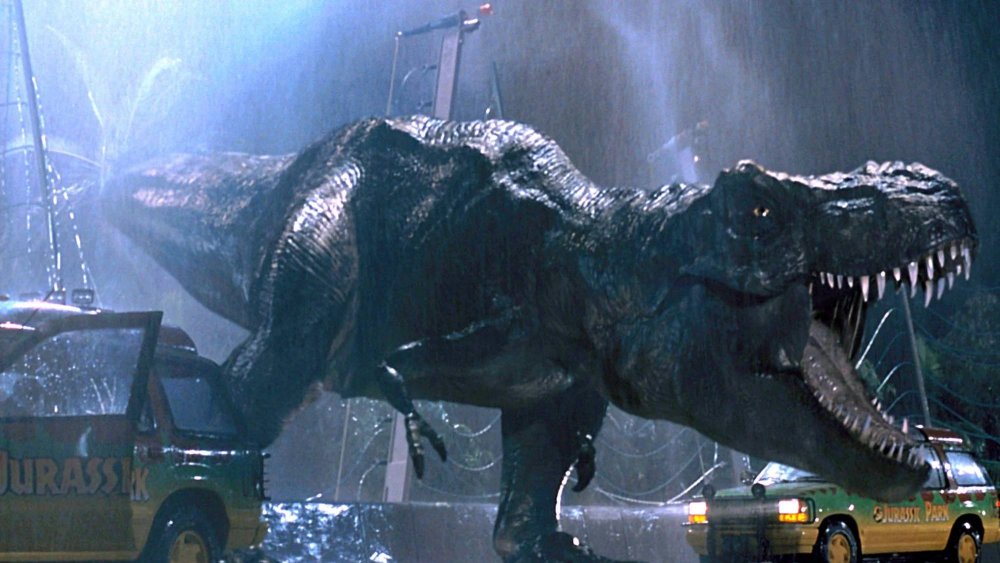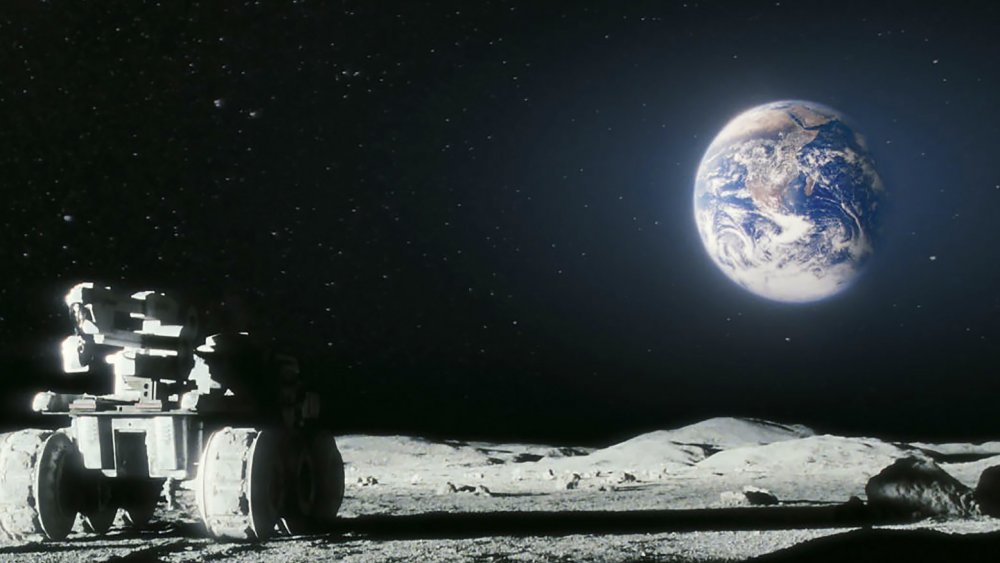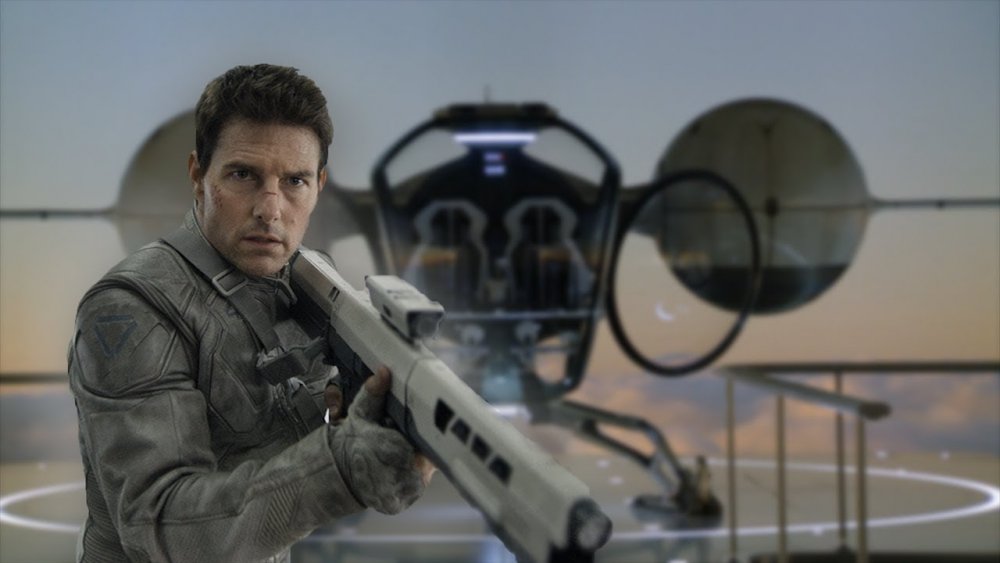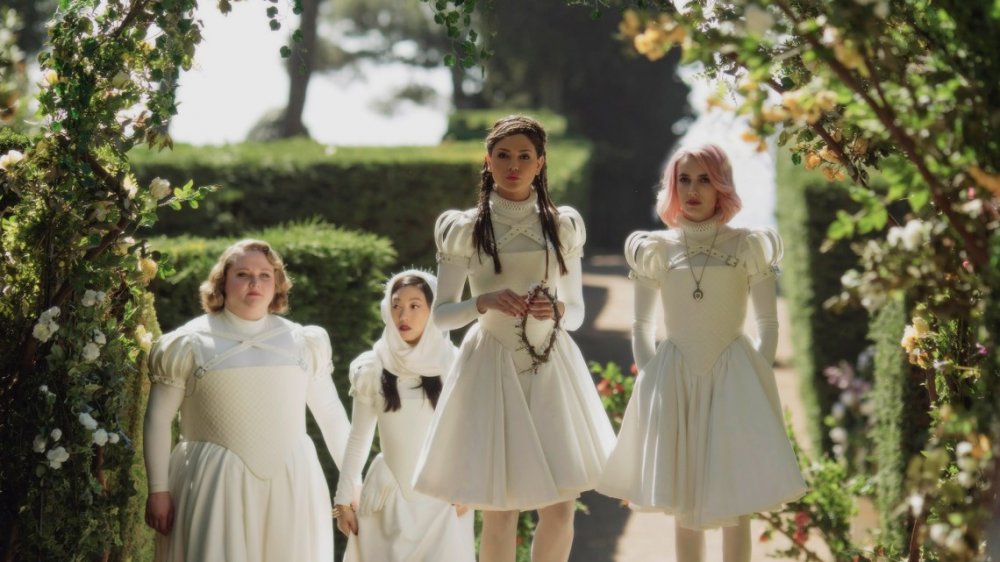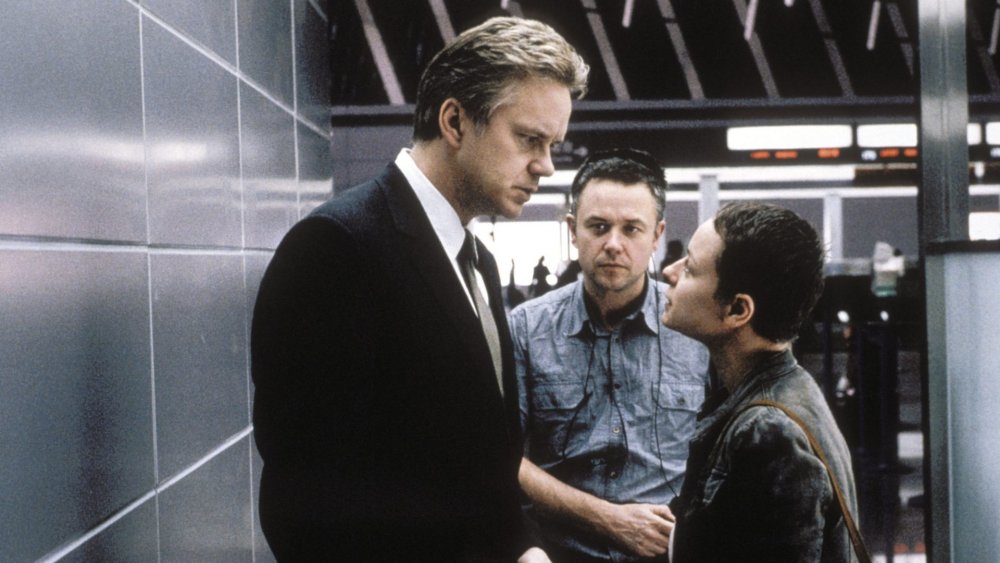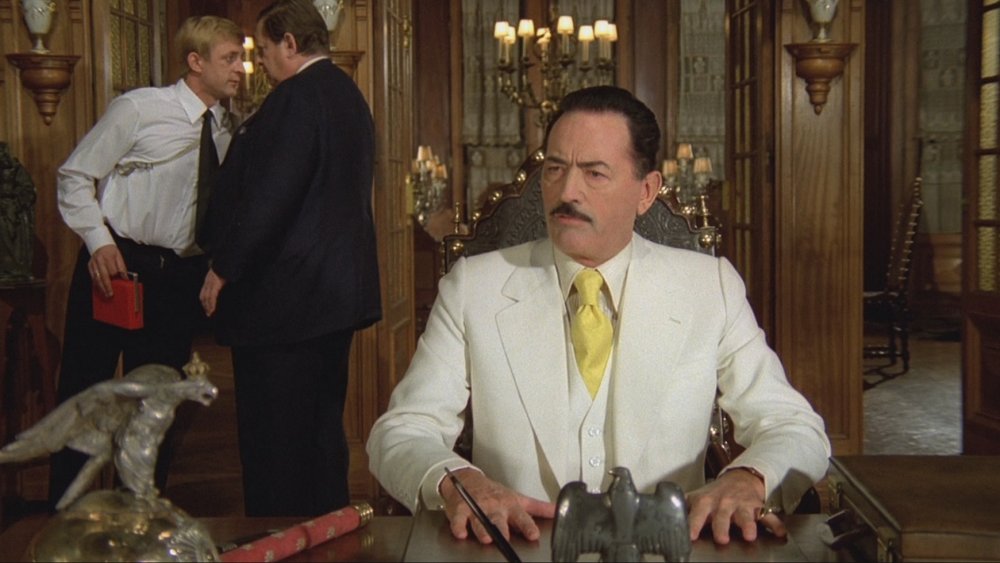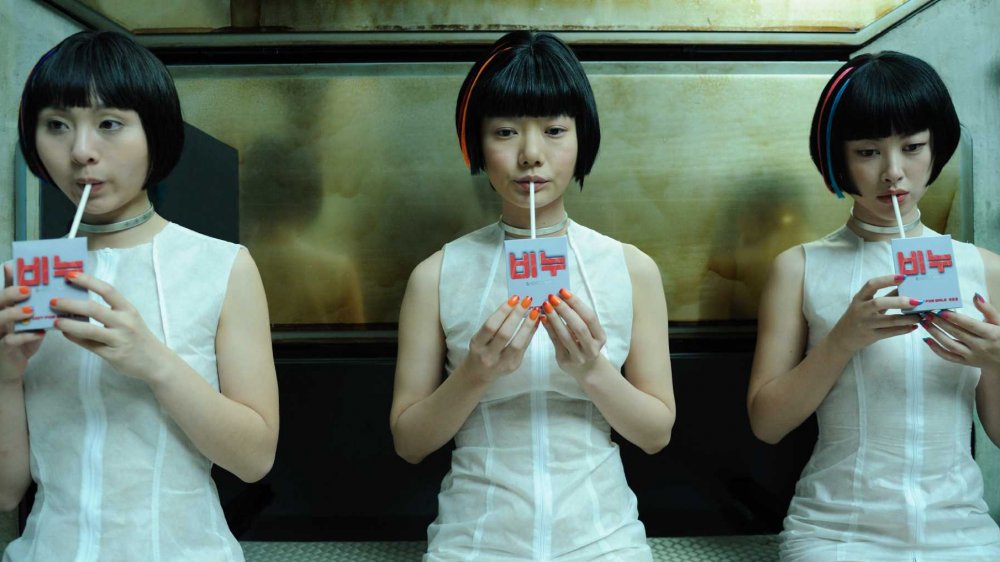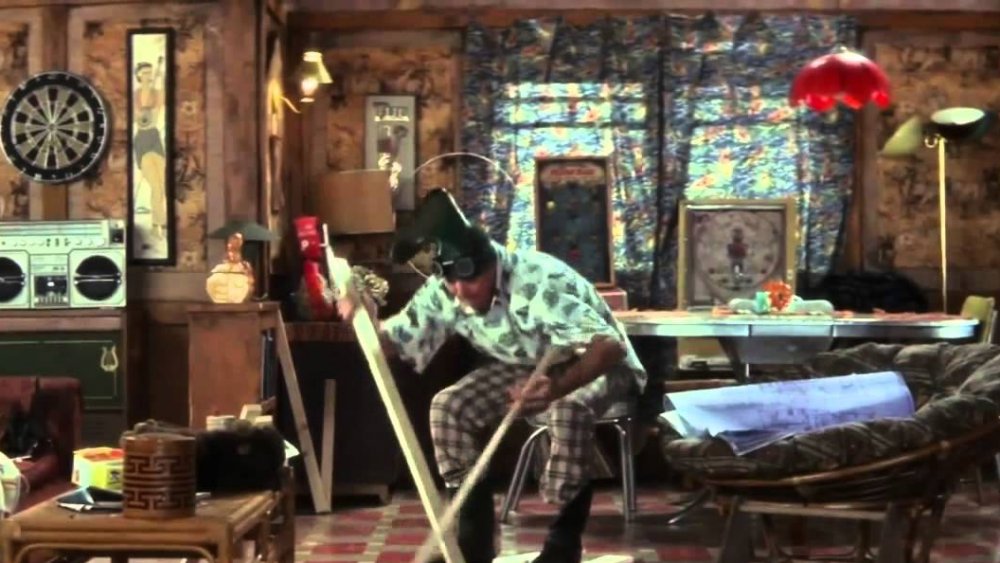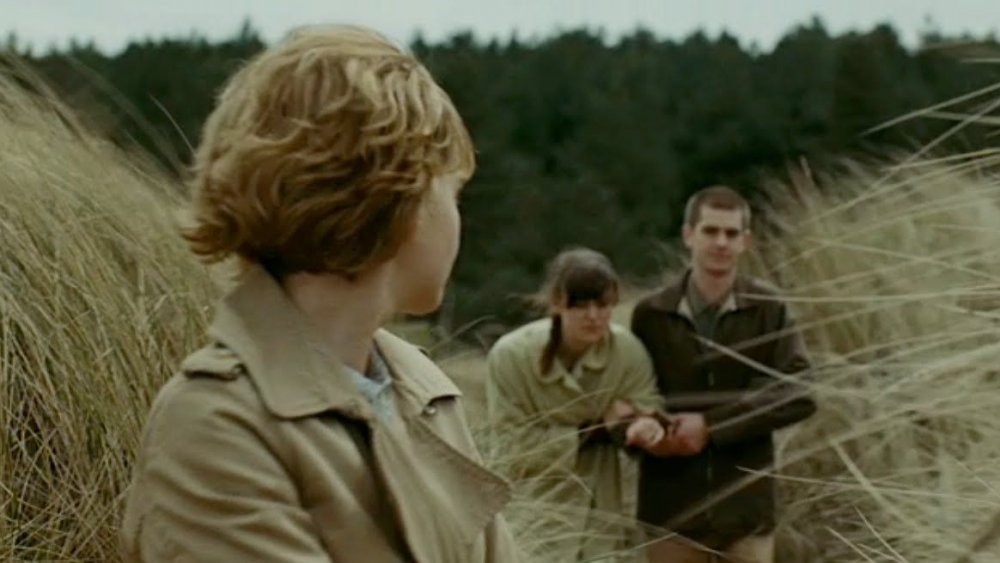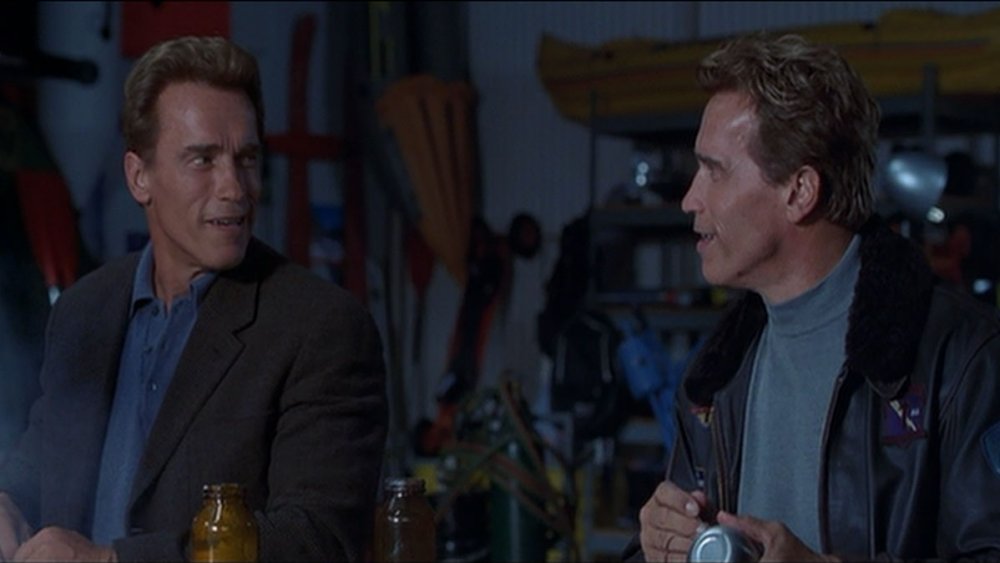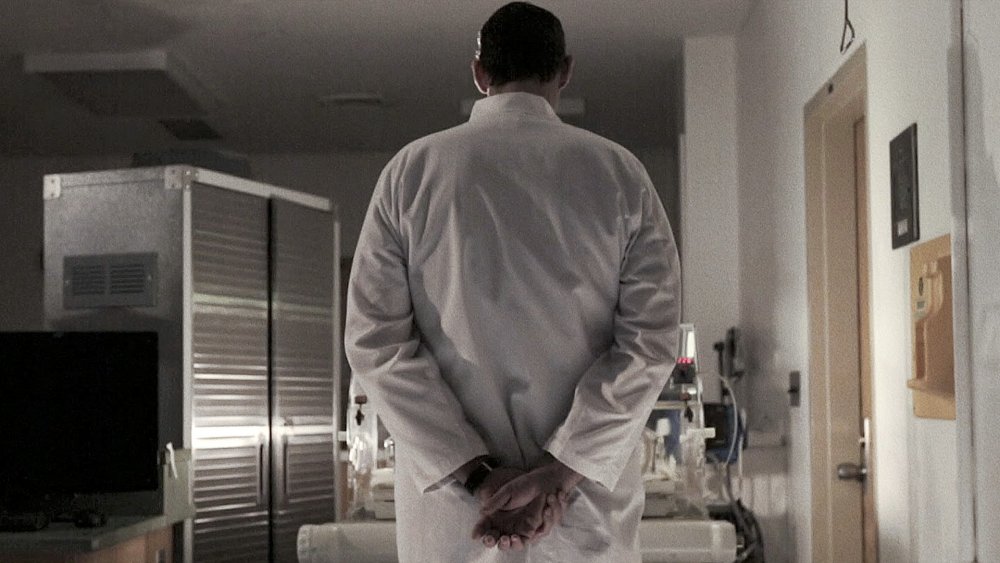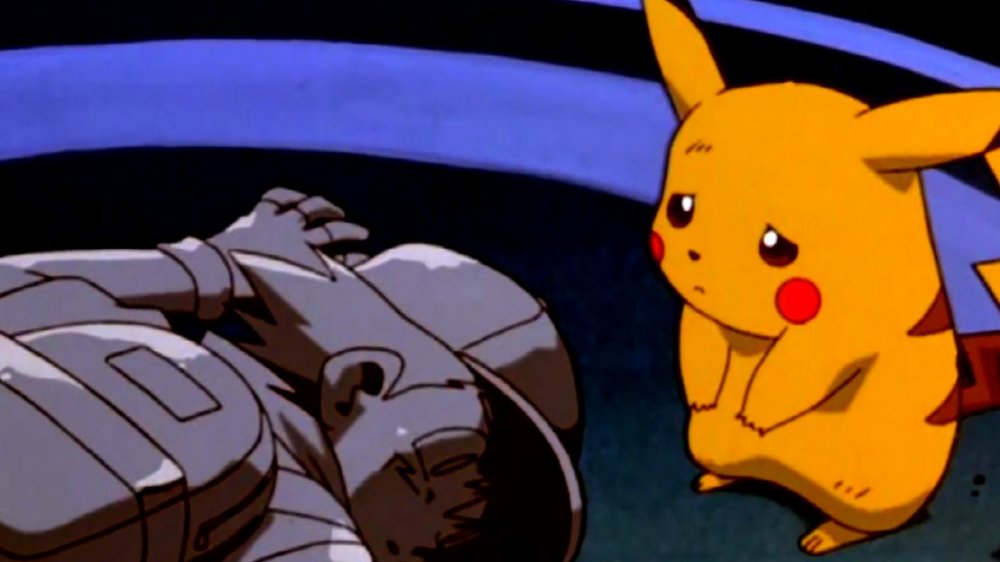The Best Sci-Fi Movies About Cloning
Cloning has fascinated storytellers for decades. Sci-fi scribes in particular have taken the idea to its most intriguing ends — especially when it comes to the movies. What might be possible, were we able to copy ourselves on a massive scale? Disaster? Enlightenment? Global networks of organ harvesting? Really confusing family photos? All this and more, according to sci-fi cinema. You might end up with a hyper-advanced society of brilliant supermodels — but you might also end up with a park full of resurrected dinosaurs, uninterested in being humanity's newest playthings.
As Dolly the sheep recedes in the world's rearview mirror and cloning becomes a more common part of our lives, we turn to art to make sense of it all. We're here to recommend the best sci-fi movies about cloning and its many ramifications. Some are all for the process, some are deeply skeptical, and some are simply weirded out. All of them are thoughtful, entertaining, and even educational. These films deserve a deep dive, so reader beware: Spoilers will be plentiful.
Jurassic Park is a warning to us all
Jurassic Park starts small, with a band of intrepid scientists on the brink of major innovation. Eureka, they succeed: Dinosaurs once again roam the Earth! What do they do with this breakthrough? They open a theme park so that the general public can witness the majesty of dinosaurs up close — for a hefty fee, of course. Things go wrong, naturally, and the dinosaurs proceed to wreak gloriously cinematic havoc.
Jurassic Park is more than just dinosaur-related misadventures, however: It's about whether or not humans have the right to play God. Our heroes meddle in the affairs of nature, and, well, nature fights back. While the science may not be airtight — we would need dinosaur DNA to actually clone one and dinosaur DNA is incredibly tough to come by – Jurassic Park is an incredible, thought-provoking work of art. What other movie is capable of interesting a grade-schooler in the possibilities of cloning?
Moon gives clones humanity
2009's Moon is an underrated sci-fi gem. Starring Sam Rockwell as a miner, Sam Bell, stationed on the moon to mine helium-3, it's a movie as introspective as it is genuinely exciting. Sam thinks he's alone, aside from his robot companion, GERTY — but it's not long until he discovers there's someone else on the moon with him. Who is this mysterious interloper? It's his clone. And so is the first Sam. They're both clones of an original Sam we never meet.
Moon is a superb thriller, carried almost entirely by Rockwell's brilliant performance. The entire movie boils down to him interacting with himself, yet it never feels boring or repetitive, only increasingly intense. Not only is this movie engrossing, it actually features accurate and well-researched science. Don't believe us? Take it from NASA: Moon was screened as part of a lecture series at NASA's Space Center Houston. Cognitive scientists are also big fans of Moon, to the point that the movie was highlighted in a 2013 issue of Trends in Cognitive Science, one of the field's peer-reviewed journals.
Oblivion is an old-school throwback
Oblivion draws heavily from science-fiction films of yesteryear, particularly sci-fi movies of the 1970s. The year is 2077, and humanity has relocated to Titan, Saturn's largest moon, after Earth was overrun by aliens. Tom Cruise's character, Jack, is sent back to Earth to help service drones in their fight against the extraterrestrials. It's during his time back on his home planet that he discovers he has been cloned. Nothing about Jack's reality is quite what it seems, and watching him unearth the truth is a gripping ride from start to finish.
Oblivion is definitely more of a popcorn flick than other movies you'll find on this list. It doesn't dive as deeply into the ethical ramifications of cloning, nor is it distinguished by granular scientific detail. But then, it's not interested in those things — Oblivion wants to be a blockbuster sci-fi of the highest order, and completely succeeds. Cloning is only one of many sci-fi concepts the movie plays with: Rebelling robots, a post-apocalyptic setting, and subterranean cities are all here too. It pretty much wins sci-fi bingo, and that's why we love it.
Paradise Hills uses cloning to express timely themes
Paradise Hills is more than just a scary tale of cloning gone awry — it's a terrifying look at sexism run rampant. The film follows Uma, a young woman who has been sent to Paradise, a center designed to "fix" disobedient women. As Uma learns more about her new home, she soon discovers the purpose of the center isn't to make its denizens better behaved, but to replace them entirely. Through extensive surgery and behavioral conditioning, Paradise remakes impoverished young women into perfect copies of their troublesome patients. The original girls meet a grisly fate within the center, and the made-over girls are sent back out into the world, for everyone to marvel at. This is a uniquely brutal take on cloning: The clone in question begins as a unique person who is steadily erased until they are a perfect copy.
Paradise Hills isn't just thought-provoking in premise — it boasts a killer sense of style, as well as performances from Emma Roberts, Awkwafina, and Milla Jovovich. It's also a movie interested in subverting expectations at every turn. There is a knight in shining armor, though he isn't exactly what he appears to be, and the girls' solution to their predicament isn't what you might expect. Paradise Hills is twisty, strange, and gorgeous — all in all, a splendid sci-fi fantasia with a socially-conscious twist.
Code 46 imagines a chilly future
Code 46 offers up dystopian sci-fi action by the bucket-load. It imagines a future in which a strictly stratified world is ordered according to a vast list of exacting codes. This includes Code 46, which outlaws the practice of "genetically incestuous reproduction," deemed necessary by how commonplace cloning has become. Our protagonist, William, navigates this strange world as an insurance fraud investigator. It's not long before he finds himself entangled in a philosophical gray zone: William falls in love with Maria, a smuggler, who is also a clone of his mother.
Code 46's world and characters may not always be warm and inviting, but that's very much of purpose, and excellently executed. This is a vision of a cold and unfeeling future, rife with chilly colors that emphasize how completely humanity has lost touch with genuine emotion. It's not unlike 1984, with a sci-fi twist. This is a movie about choosing between complacency and freedom — a question everyone must face in their life, whether or not they live in hyper-advanced clone-heavy dystopias.
The Boys From Brazil takes you for a ride
The Boys From Brazil is one of the most outrageous films on this list — which is saying something, as this list includes dinosaur theme parks and magical Pokemon tears. The Boys From Brazil follows Ezra Lieberman, played by Laurence Olivier, an aging Nazi hunter who learns that Third Reich war criminals are alive and holding meetings in Paraguay. The story takes various twists and turns until Ezra learns that these Nazis have successfully cloned Hitler 94 times, and sent the babies to be adopted by different families all around the globe.
The clones weren't adopted by just anyone, however: The Nazis delivered the children to parents much like Hitler's own. Painstaking care was taken to approximate the terrible leader's upbringing, to the point that the adoptive fathers were all murdered at the same age Hitler's own father died. It's a cloning movie that brings up a different kind of ethical conundrum: If you could go back in time and kill Hitler as a baby, would you do it? You may not agree with the final decision in the film, but it will have you and your fellow filmogers debating it long after it's over.
Cloud Atlas brings clones into its interweaving plotlines
For years, people thought it would be impossible to film Cloud Atlas. David Mitchell's seminal book features six plots across six different periods of time, after all. The resultant movie is indeed incredibly complicated — it's not the sort of movie you can watch while tapping away on your phone. One particularly interesting storyline is the tale of Somni-451, a clone enslaved as a fast-food worker in a dystopic Seoul.
Some might find the film too long, and consider its interweaving storylines needlessly convoluted. But there's something undeniably admirable about a movie that's not afraid to take risks and really give audiences something to chew on. Cloning may only come up in one of its plotlines, but those sequences have some of the most striking visuals of the entire film and a story you'll be pondering long after the credits roll. Actress Bae Doona also brings a real humanity to Somni-451, making her tale one of the most engaging of the entire film.
Multiplicity makes cloning funny
When you think of movies involving cloning, you likely think of films in the sci-fi and horror genres. Multiplicity, in contrast, takes the concept of cloning makes a full-blown comedy out of it. Michael Keaton plays Doug Kinney, a scientist who has discovered a successful way of cloning himself. He proceeds to make numerous duplicates, each of which has a different personality. As you would expect, various shenanigans ensue, such as the real Doug not understanding any conversations his wife unwittingly had with one of his clones.
The film was directed by Harold Ramis, who also directed Groundhog Day. Similar to that film, Multiplicity mixes tenderness with laughs. This movie isn't interested in dealing with the actual science of cloning — instead, it focuses on the very human nature of relationships, and how romances degrade if you don't spend enough time with your partner. It's the rare kind of film that makes you laugh one minute and question your own humanity the next. Plus, wacky clone hijinks. What else could you want?
Never Let Me Go will break your heart
2010's Never Let Me Go is a heart-wrenching love story that just so happens to include cloning. The movie takes place in an alternate timeline, where human beings regularly live past 100. What has enabled this feat? Clones, created and nurtured for organ donation. Every clone eventually "completes" in early adulthood — a soft euphemism for death on the operating table. That fate is precisely what awaits our trio of protagonists, who have grown up in a boarding school for clones. As they learn, this school is one of the last attempts at ethical treatment of clones in existence.
The driving force of the film are the relationships between the three central characters, who are played to perfection by Andrew Garfield, Keira Knightley, and Carey Mulligan. It's a film that makes you cry, as well as look critically at the relationships in your own life. Never Let Me Go is about human connection on a variety of levels, the prism of cloning used to examine everything from concepts of family to the slow fade of romance. It's melancholy, intimate, and unlike any other sci-fi movie out there.
The 6th Day doubles the Schwarzenegger
Set in the near future, The 6th Day takes place in a society where animal-based clones are part of everyday life. Cloning another human being, however, is strictly outlawed. One day, a helicopter pilot played by Arnold Schwarzenegger stumbles upon someone who's been violating laws involving human clones. After he avoids a fiery crash, he returns home ... to find a clone of himself already there.
Your enjoyment of this film depends on how much classic Schwarzenegger-style action you can take. The fight scenes recall his glory days — which can be a good thing or a bad thing, depending on your personal attitudes. Regardless, this is one action film that's a lot more thoughtful than many others. The construction of this fictional world and its many arcane laws is genuinely fascinating — this is a proper sci-fi movie, not an action flick with sci-fi set dressing. Plus, seeing Arnold Schwarzenegger play off himself is a hoot.
Closer to God shows what happens when you play God
Cloning has been a source of fascination for sci-fi storytellers for decades. Mary Shelley's 1818 masterpiece Frankenstein can even be understood as a story of cloning — and especially cloning gone wrong. The 2014 horror film, Closer to God, continues this tradition by examining the idea of humanity ascending to godhood — and falling into darkness as a result.
Closer to God tells the story of a scientist who creates the world's first clone. The media reacts negatively to the revelation, forcing the scientist to keep the clone at his own house. But his home isn't as safe as he believes it to be ... and it's his own fault. His first clone lives there too, and he isn't too happy about his life's circumstances. The film ricochets between philosophical rumination on whether humans should engage in cloning and more typical horror movie fare. What results is unique, exciting, and deeply strange.
Pokemon: The First Movie is surprisingly profound
If you were a kid in the '90s, then Pokemon: The First Movie was an integral part of your childhood. If you were an adult who had to watch Pokemon: The First Movie in theaters, then you were likely confused the entire time, and that's okay, too. The film follows the adventures of Ash, Misty, and Brock as they receive a mysterious letter inviting them to an island. There, they discover Mewtwo, a cloned Pokemon of tremendous power, has created an army of clones to prove his superiority to the world.
You may not expect a movie about Pokemon to be all that profound, but believe it or not, it deals with some pretty heavy stuff. "I see now that the circumstances of one's birth are irrelevant," Mewtwo notes towards the film's end, "It is what you do with the gift of life that determines who you are." That's a solid line, no matter what movie it's coming from. Ash may be the protagonist, but Mewtwo is the real star of the show, and his journey to compassion is solid. Sure, its take on cloning is simple, but that's kind of the point — no matter who someone is or how they came to be, they deserve kindness and respect. Now that's a lesson worth taking into one's adulthood.
